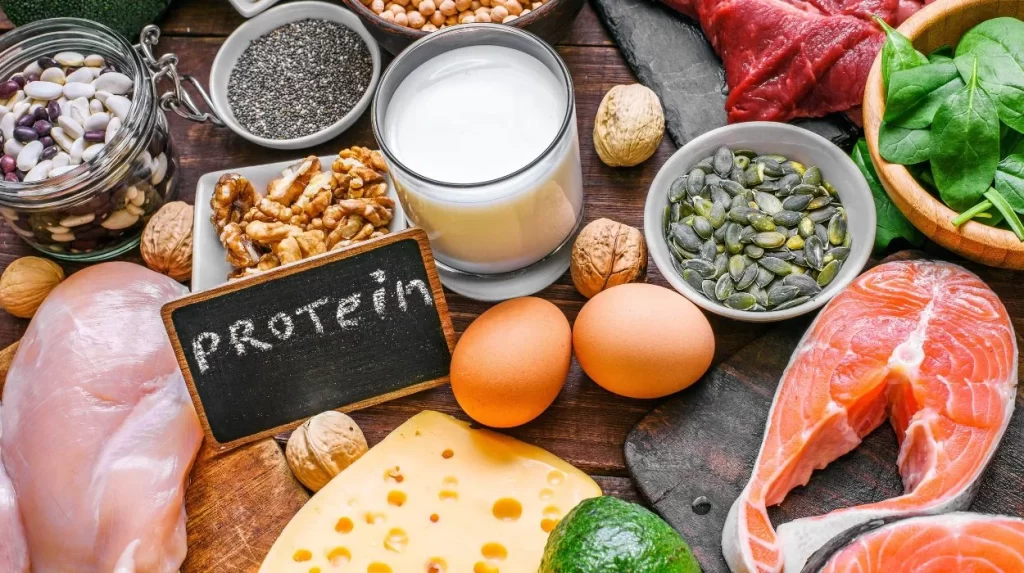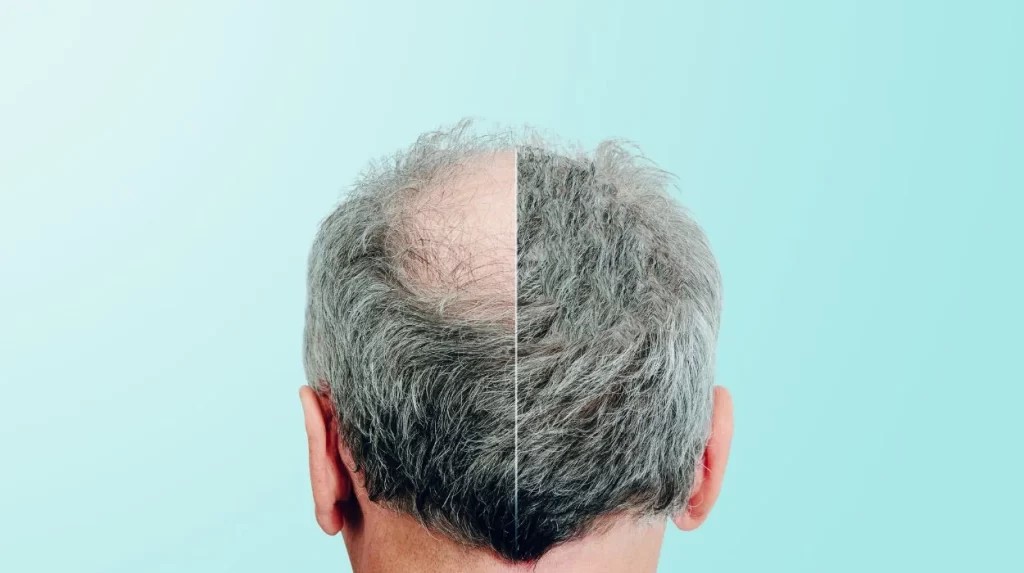We have all experienced the dread of getting a bad hairstyle or new bangs, which then turn out to be embarrassingly bad for your self-image. Sadly hair won’t grow overnight to cover the mishaps. For most of us, hair is an important aspect of our appearance and self-expression. Maybe you noticed your hair is taking what seems to be an eternity to grow so you can finally rock that ponytail. Although there is no magic pill for this, there are some tricks to learn if you want to make your hair grow faster.
Tips On How To Make Your Hair Grow Faster
- Eat enough protein and balance your nutrition. If needed, consider using a nutritional supplement.
- Do gentle massages on your scalp.
- Know your hair: Keep a healthy scalp, trim your split ends, use the right hair products, and free your hair. This will allow you to manage it correctly.
How To Make Your Hair Grow
If you are wondering how to grow your hair faster, you will likely still have to wait patiently for it to grow. There are ways, however, to stimulate hair growth. In particular, protecting the hair at the different stages of growth is your best bet to have healthy hair.
Eat Enough Protein

Foods like chicken, lean meats, eggs, fish, tofu, and legumes are all sources of protein. Protein deficiency, although rare in developed countries, can cause decreased hair growth and increased hair loss. Generally, eating around 5-6 ounce servings of protein per day may be enough for most adults to consume to maintain general health.
Check for nutritional deficiencies.[1] Ask your doctor for a blood test to tell if you are lacking specific nutrients. Most hair growth supplements do not show evidence that they help with hair growth.
If you have a specific nutrient deficiency, corroborated via a blood test, replenishing those deficient nutrients may be what you need to know how to let your hair grow faster. Infusing vitamins or minerals directly into the scalp is not the best idea since they are not easily absorbed through the skin barrier. If nutrition supplements are needed, talk to your doctor to recommend specific ones to use orally.
Balance Your Nutrition
Eat a variety of foods and colors, like that on MyPlate.[2] This is how you support your hair to grow naturally and keep your hair healthy. Following a low-calorie diet or a diet that eliminates whole food groups can negatively impact healthy growth.
Keep in mind that even if a food is not directly related to hair growth, it may be needed to protect from inflammation or scalp health. Foods like sources of omega-3 fatty acids, fruits, and vegetables are protective of your hair, allowing it to grow without issues.
Low levels of some particular nutrients in our body can affect hair growth or show up as hair loss. Getting enough iron[3] from foods like meats, beans, lentils, and spinach is great for carrying oxygen to your hair and promoting growth. Zinc, when deficient, can cause hair thinning. Eating animal protein, legumes, nuts, and eggs can provide enough zinc.
If you are wondering how to use eggs to grow your hair faster, just eat them! Egg yolks are a natural source of biotin, another nutrient that, if deficient, affects how your hair grows. Biotin also helps you grow thicker and shiny hair.
Do Gentle Massages
Do some scalp massages[4] to stimulate blood flow to the hair follicles. In some studies, hair grew thicker when a scalp massage was performed because it stimulated blood circulation. Scalp massages also induce mechanical stress on the hair follicles, thus stimulating their growth. You can use your fingers to massage or use a scalp massager.
Other Method
- Keep a healthy scalp. Conditions[5] like psoriasis and dandruff affect hair growth. They cause oxidative stress and affect the structure of the hair. Get treatment for hair from your medical provider for any of these.
- Trim your split ends. When you have split ends, it spreads to the rest of the hair shaft. Trimming helps prevent split ends from ruining the hair shaft.
- Use the right hair products. Gentle shampoo, followed by a moisturizing conditioner can reduce damage to your hair. Using a leave-in conditioner or detangler when needed, can decrease breakage and split ends.
- Free your hair. Having your hair tightly pulled back, like in a tight braid, can cause permanent hair loss by inducing stretching forces on your scalp. Choose loser braids, cornrows, buns, or ponytails.
How Fast Does Hair Grow?
Hair growth takes longer for areas where hair tends to be longer and less time for those areas with shorter hair, like lashes. In general, hair grows around half an inch per month. The amount and maximum a hair grows differ by individual.
The human scalp has around 100,000 hair shafts in different degrees of the growth cycle.[6] There are three main phases of the hair growth cycle:
The Anagen Phase
Lasts an average of two to seven years, this is part of the hair cycle where your hair grows. It may be interesting to know that this is where the hair bulb grows the longest and can grow between 18-30 inches. Ninety percent of our hair is in this stage.
The Catagen Phase
This is the transitional phase that lasts between two to four weeks. The blood supply is cut off from the hair, signaling the end of the growth phase.
The Telogen Phase
This is the last phase before hair shedding, known as the resting phase. This phase includes the exogen when the hair is released for a new one to grow. We usually lose between 50 and 100 hairs per day. Hair is constantly growing, so this shedding is usually unnoticeable.
What Can Affect Hair Growth?

Normal things we do to our hair can affect how it grows. The way we style our hair, the products we use, or the application of color treatments all can affect the rate of hair growth. In addition, hormonal changes, aging, and nutrition can affect how your hair grows.
Aging will not only affect the pigmentation of the hair or graying but will also decrease the number of hair follicles. This could show as the hair on your head looking sparse or your hairline receding. Although an increase in hair growth in other areas like the face may occur with aging.
Some drugs or medical treatments may cause hair loss and stop the hair from growing. Chemotherapy and radiation therapy, for example, can cause hair loss. Discuss the side effects of your medications and treatments with the medical provider and how to best protect your hair.
When we are not getting enough biotin, iron, or zinc, it can adversely affect our hair growth. If you have poor absorption of nutrients[7] due to a gastrointestinal condition, please check with your medical provider for your options to treat this condition. People suffering from eating or immune disorders can also have impaired nutrient absorption or inadequate nutrition.
What To Avoid To Promote Hair Growth
If you want to grow your hair, it is important to protect it at every growth phase.
Strong Chemicals
Using strong processing products like hair coloring and relaxers can cause hair damage. It might be best to avoid these while growing out your hair. If you would like to continue to color or relax your hair, visit a professional to help apply these chemicals and decrease the possibility of hair damage.
Too Much Heat
For those who love sporting straight hair or awesome beach waves let your hair dry out before heat styling either with a microfiber towel or let it air dry. Prevent damage by using your flat iron on a lower setting and limiting the number of times per week you use heat styling. This will protect your hair from damage and from causing it to fall out.
Low-Calorie Diets
People following really strict diets may suffer from hair loss due to inadequate protein, essential fatty acids, vitamins, and minerals intake. Your hair breaks easily and loses its shine when you eat less food than your body needs. It can also cause your hair to fall.
The quantity of vitamins, minerals, and macronutrients (protein, fats, carbohydrates) consumed affects our hair growth. These nutrients participate in each phase of hair growth, making sure your hair grows out with good structure, strength, and shine. When your body is deficient in nutrients or calories, it will prioritize them for other functions, and your hair suffers.
If you need to follow a lower-calorie diet or have undergone gastric bypass surgery, talk to your medical provider about the right nutrition supplements needed to prevent hair loss.
Stress
Haven’t you had stressful situations and noticed your hair is falling out more than usual? Stress affects the hair follicle, leading to alopecia areata or hair loss in clumps. An increase in the release of cortisol is associated with the development of hair growth disorders.
Although stress[8] is difficult to avoid, there are ways to manage its negative effects on the body. Activities like yoga, meditation, massages, or aromatherapy might be things to try to help ease stress or anxiety.
Conclusion
Practicing healthy hair habits will help you grow stronger and longer hair. It is unknown tricks to make your hair grow faster in a day or even a week; there are ways, however, to protect it and keep it growing.
Eating a healthy diet, protecting your scalp, and avoiding damage to your hair are good ways to grow your hair out in a strong, healthy manner. If you are experiencing hair loss or health issues, visit a dermatologist. Always talk to your doctor before starting any nutritional supplements.
+ 8 sources
- Finner, A.M. (2013). Nutrition and Hair. Dermatologic Clinics, [online] 31(1), pp.167–172. doi:https://doi.org/10.1016/j.det.2012.08.015.
- USDA (2020). What is MyPlate? | MyPlate. [online] www.myplate.gov. Available at: https://www.myplate.gov/eat-healthy/what-is-myplate.
- Wall, D., Meah, N., Fagan, N., York, K. and Sinclair, R. (2022). Advances in hair growth. Faculty Reviews, [online] 11. doi:https://doi.org/10.12703/r/11-1.
- Koyama (2016). Standardized Scalp Massage Results in Increased Hair Thickness by Inducing Stretching Forces to Dermal Papilla Cells in the Subcutaneous Tissue. Eplasty, [online] 16. Available at: https://pubmed.ncbi.nlm.nih.gov/26904154/
- Tosti, A. and Schwartz, J.R. (2021). Role of scalp health in achieving optimal hair growth and retention. International Journal of Cosmetic Science, [online] 43(S1). doi:https://doi.org/10.1111/ics.12708.
- Buffoli, B., Rinaldi, F., Labanca, M., Sorbellini, E., Trink, A., Guanziroli, E., Rezzani, R. and Rodella, L.F. (2013). The human hair: from anatomy to physiology. International Journal of Dermatology, [online] 53(3), pp.331–341. doi:https://doi.org/10.1111/ijd.12362.
- O’Connor, K. and Goldberg, L.J. (2021). Nutrition and hair. Clinics in Dermatology, [online] 39(5), pp.809–818. doi:https://doi.org/10.1016/j.clindermatol.2021.05.008.
- Carlson, L.E., Toivonen, K. and Subnis, U. (2019). Integrative Approaches to Stress Management. The Cancer Journal, [online] 25(5), pp.329–336. doi:https://doi.org/10.1097/ppo.0000000000000395.
